 Rheumatoid Arthritis Diet: Is Keto the Way?
Rheumatoid Arthritis Diet: Is Keto the Way?
Rheumatoid arthritis, or simply RA, is an autoimmune disease that causes the body’s immune system to attack healthy cells as if they were foreign invaders. This causes swelling, pain, inflammation, and redness in the joints and surrounding tissue. With an increasing understanding of nutrition and disease, we will investigate if there is an ideal rheumatoid arthritis diet to improve this condition.
The exact cause of RA is not understood but appears to be related to genetic and environmental factors. This disease affects more women than men and typically shows up in those between the ages of 40 and 60. RA is a very complex issue and can have crippling pain for many. Less than 1% of those who have been diagnosed with the disease will go into remission. Certain lifestyle factors may be able to improve your chances of remission or at least lessen symptoms associated with RA.
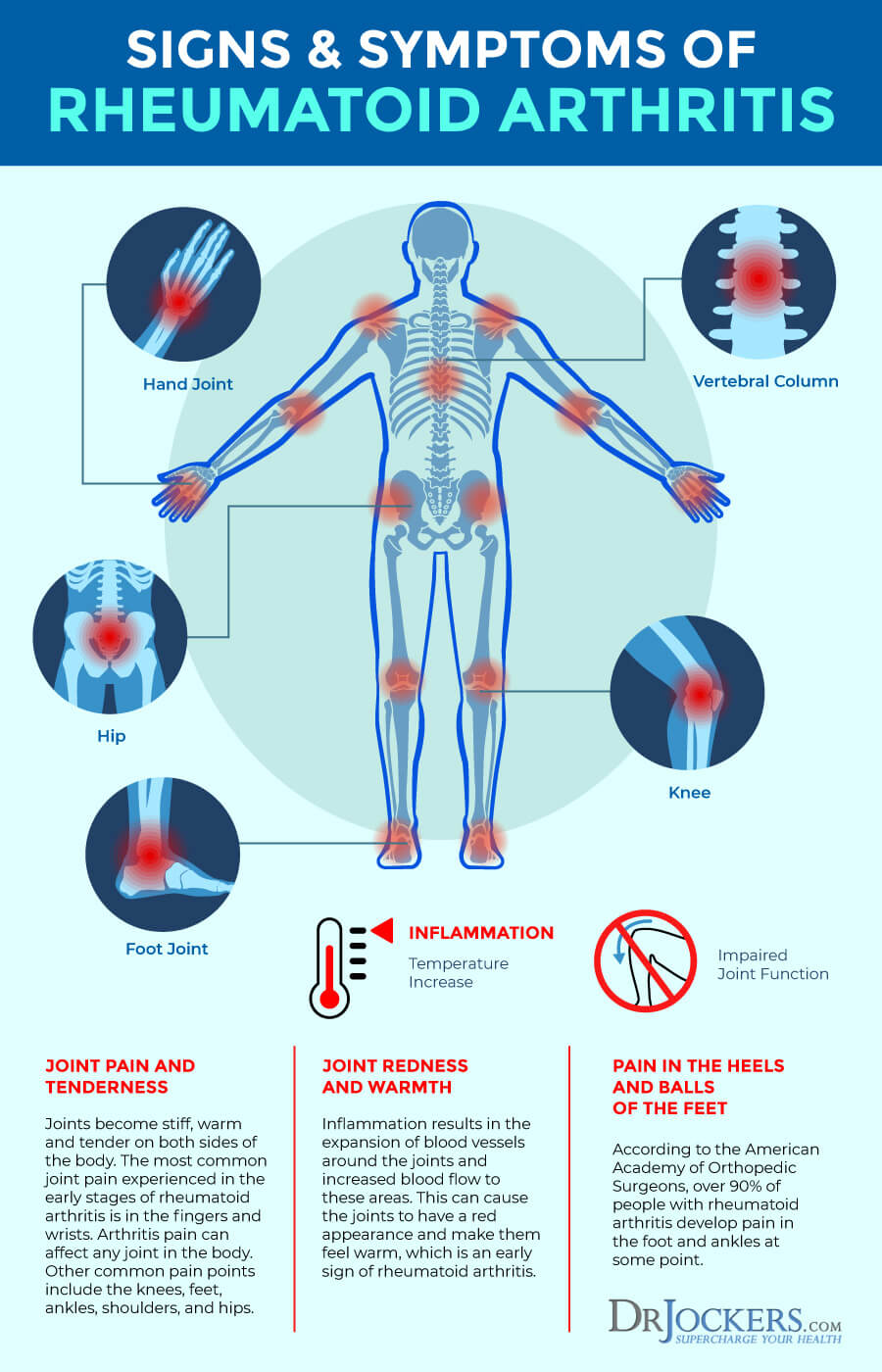
Chronic Inflammation & Autoimmunity in RA
RA involves the accumulation of inflammation in and around the joints caused by a chronically elevated immune response. A typically beneficial and protective mechanism of the immune system, in this case, turns into a damaging force.
A commonly prescribed treatment is pain medication and immune system-suppressing drugs. This is in an attempt to calm the immune system and decrease the perception of pain. The issue here, though, is that the underlying issues are not addressed in any way. Consequently, many people do not feel any improvement while using these therapies.
This is why I would like to express my thoughts on a rheumatoid arthritis nutrition template that may be used as an alternative or complementary therapy.
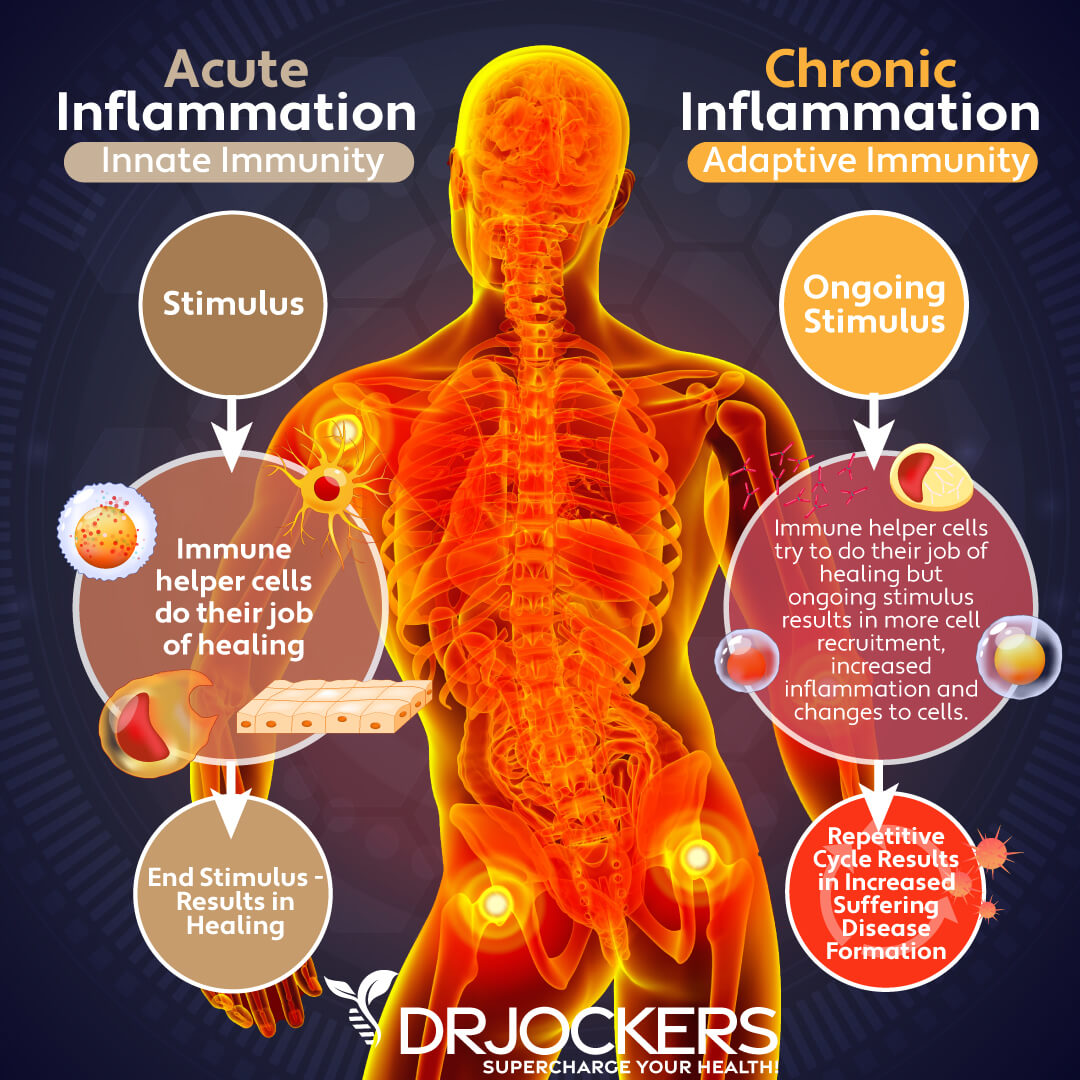
Overview of Therapeutic Options for RA
There are numerous other holistic ways of improving rheumatoid arthritis symptoms including:
- Reducing stress
- Consuming foods and herbs high in antioxidants
- Supplementing the diet with omega-3’s
- Supplementing with Vitamin D and K2
- Several other considerations, as you can read about in this article.
In addition to the recommendations above, I believe that there is still another way to help control many of the symptoms and pain that RA patients deal with on a daily basis. Much of the pain that RA patients feel comes from inflammation.
If inflammation can be controlled, then it follows that pain could also be controlled. To a large degree, your nutrition plays a role in inflammation levels in the body. This is why it is possible to design an effective rheumatoid arthritis diet. In particular, a ketogenic nutrition plan may be able to provide several benefits.
A ketogenic diet may be an effective rheumatoid arthritis diet not only by helping control weight through accelerated fat loss – but by also providing a substantial reduction in inflammation levels.
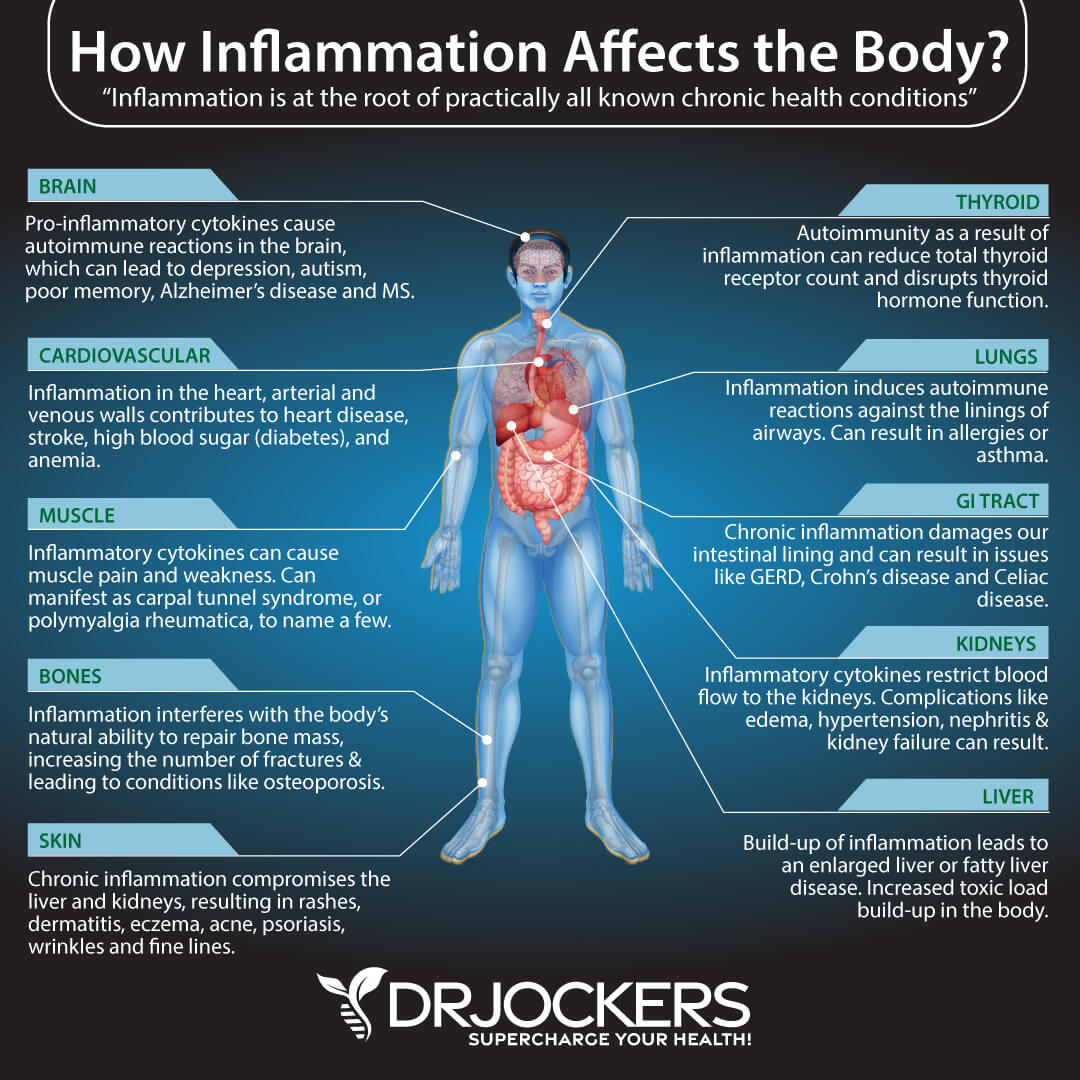
What is the Ketogenic Diet?
Chances are, you have at least heard about this eating plan. Often referred to simply as “keto”, this is a low-carbohydrate, high-fat diet that was originally created to help treat epileptic children not responding to medications.
When we lower the number of carbohydrates that we consume, we transform the body’s reliance on glucose (sugar) and force it to rely on ketones (fat) for its primary source of energy.
This may sound extreme, but ketosis is actually a built-in mechanism that our bodies use to thrive. The keto diet can vary, but generally speaking, it calls for a consumption of 65-75% of calories from fat, 20-30% from protein, and only 5-10% from carbs.
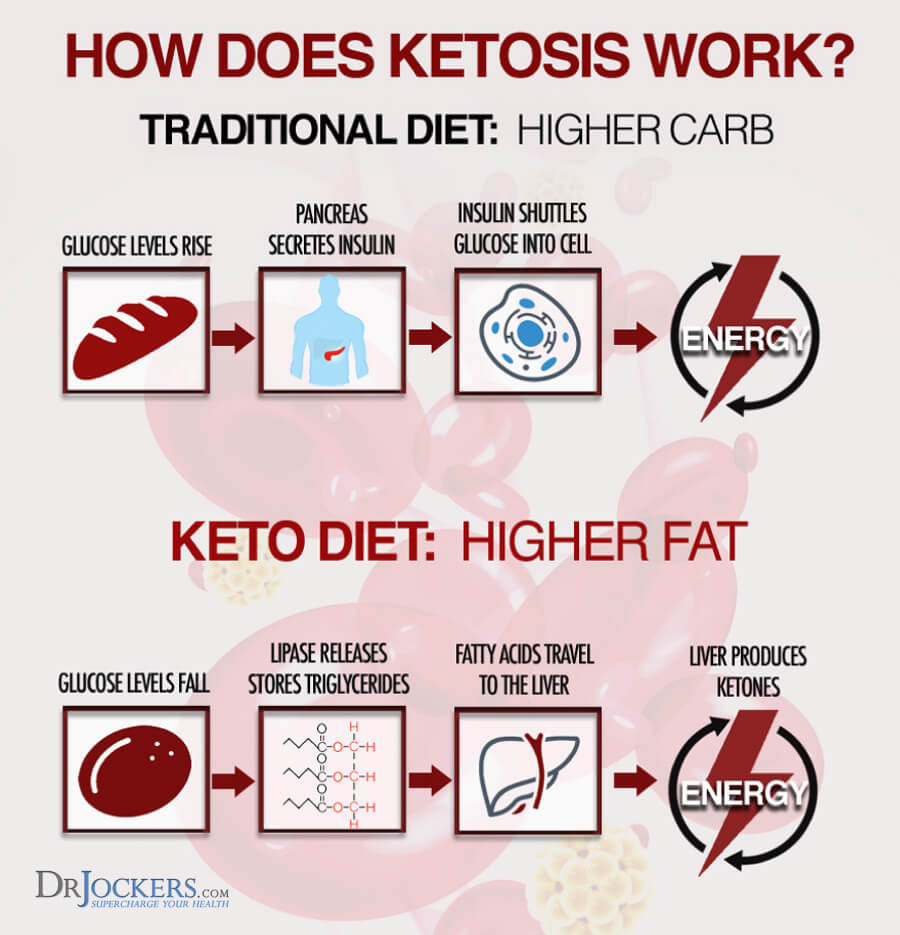
Benefits of A Ketogenic Diet
A ketogenic lifestyle can be the perfect rheumatoid arthritis diet because shifting into a state of fat-burning has several benefits in the body. The primary two benefits that would offer those with RA relief are:
- A reduction in inflammation due to improved mitochondrial energy production from fats (as opposed to sugars)
- A reduction in excess stress on the joints and ligaments if weight loss is achieved
Additionally, the way I advocate a ketogenic diet also eliminates virtually all sugar, gluten, grains, and several other common inflammatory foods. As you will see below, I take an additional step and remove some other common keto foods that I have seen clinically be more likely to provoke more autoimmune symptoms. This special autoimmune focused keto diet is a powerful way to reduce inflammatory symptoms.
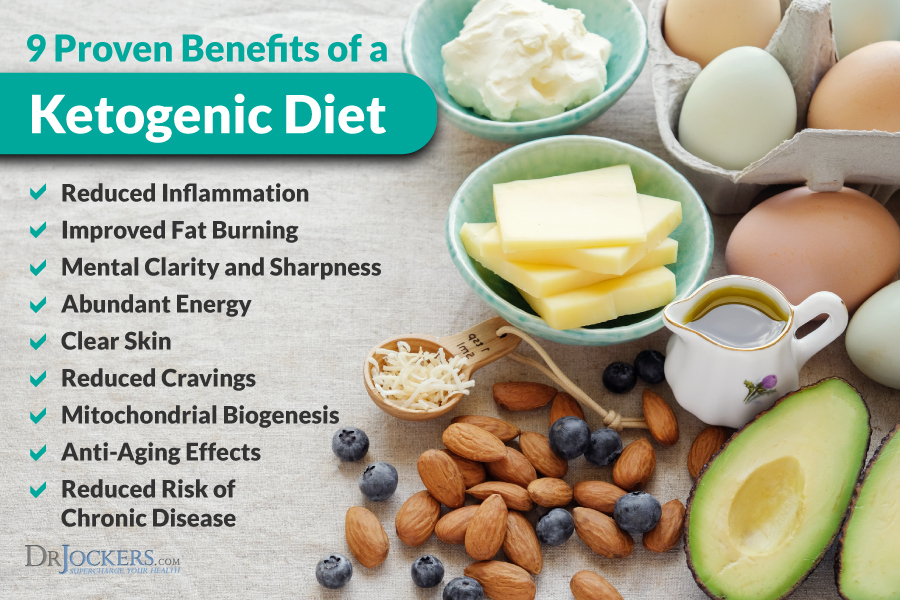
Ketogenic Food Pyramid
There is plenty of evidence linking certain foods to higher levels of inflammation, including:
- Sugar, especially high fructose corn syrup (1)
- Trans Fats, such as those found in margarine and GMO vegetable oils (2)
- Refined Carbohydrates, including white bread (3)
- Processed Meats, such as bacon, ham, and beef jerky (4)
Other than processed meats, the keto diet eliminates virtually all the above foods. Therefore, subjects who wish to begin the keto diet be aware and/or be informed that the protein they consume should never include processed meats. Protein sources should focus on grass-fed, organic meats and animal products, such as cage-free eggs.
The graphic below shows how a ketogenic rheumatoid arthritis diet food pyramid would look. Below that are additional foods that would nourish the bones and joints further.
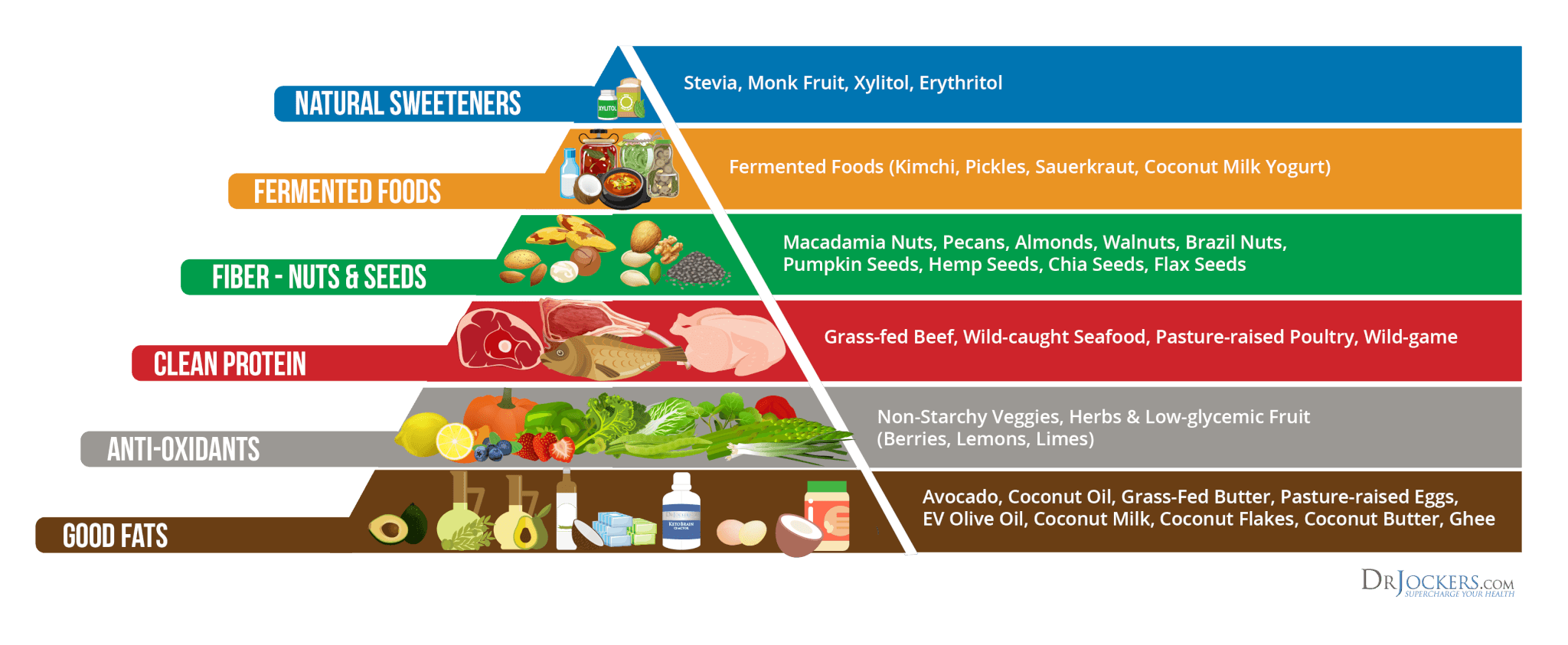
Keto as a Rheumatoid Arthritis Diet
As a chiropractor in Anchorage, I have seen several patients with RA have their lives changed simply by changing their diet. Lifestyle adjustments and supplements often help promote healing even further.
However, my own anecdotal experiences cannot be considered scientific evidence. Luckily, there is substantial scientific evidence to support the idea of a rheumatoid arthritis diet:
- In August 2013, an article published in the Journal of Child Neurology concluded that a ketogenic diet could inhibit pro-inflammatory pathways associated with pain. (5)
- As I mentioned earlier, this diet was designed to help children with brain disorders, such as epilepsy. One of the mechanisms by which this works is by lowering inflammation. Since the mechanisms of inflammation are similar through the body, this would lead to less pain via inflammation. A review of studies found that the keto diet did indeed reduce inflammation. (6)
- While many studies in this area use animals, a small study performed in 2000 found that after just 7 days on the keto diet, subjects with RA had lower levels of cortisol, lower body weight, and a reduction in pain levels. (7)
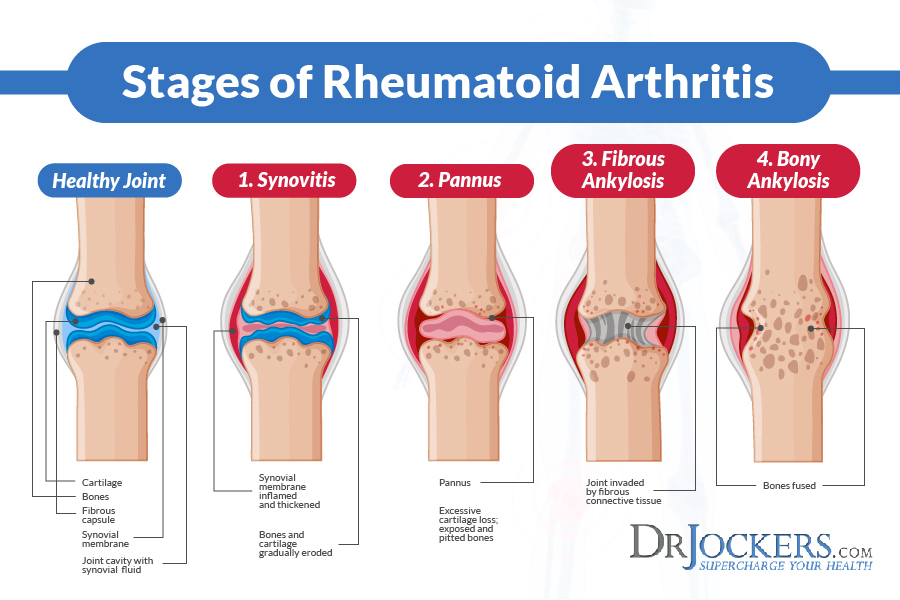
Mental Improvements
RA patients commonly have depression and mood disorders. This is likely another consequence of chronic inflammation as it extends into the brain.
Two studies involving animals have found the following:
- The keto diet can have an anti-depressive effect (8)
- It can also promote physical activity due to an increase in dopamine and serotonin in the brain (9)
While human studies are needed to further support these findings, clinical experience supports this.
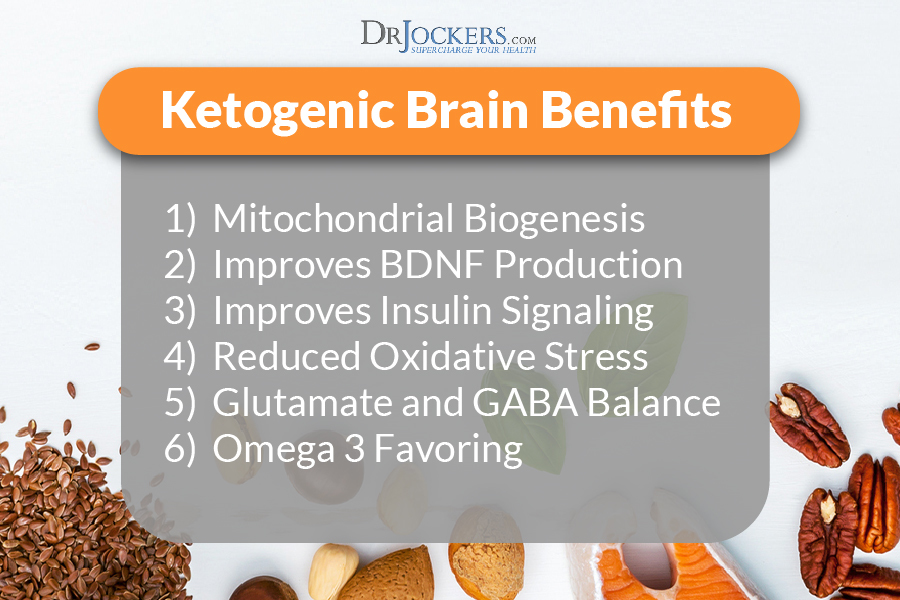
Weight Loss & RA
In humans, a strong link has been established between obesity and the heightened risk of developing RA (10). For those who are overweight and have RA already, promoting weight loss will have a very relieving effect. Because of these considerations, a ketogenic diet is likely a great strategy to both prevent and improve RA (11).
While physical activity is generally desirable for those with RA, being overweight can make it very painful. Luckily, a ketogenic diet can improve weight loss even in the absence of exercise. Once the excess weight is lost, then exercise may be reintroduced with much less pain.
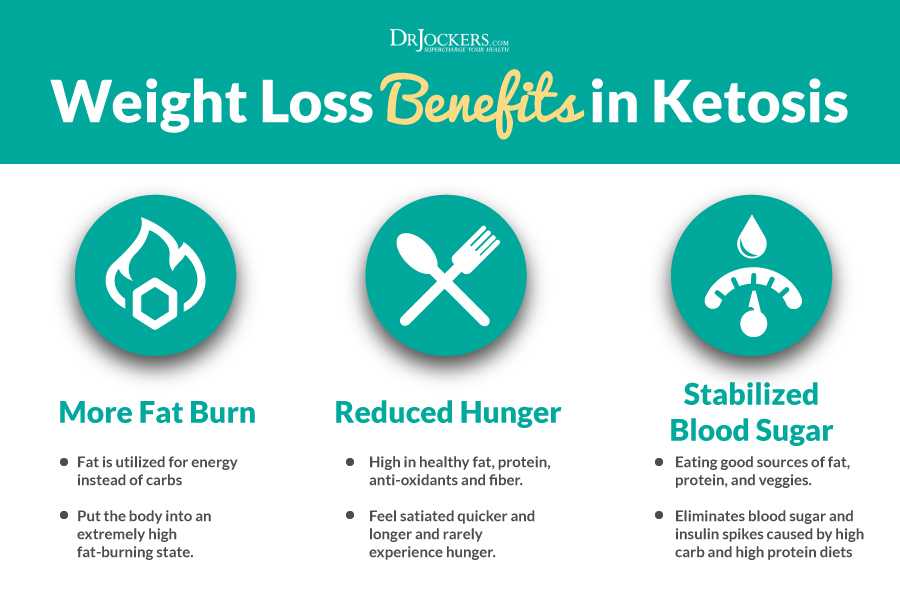
How to Design a Rheumatoid Arthritis Diet
A nutrition plan designed for RA, from my perspective, would likely rely on a ketogenic template with an autoimmune twist. Common keto foods that are more commonly immune triggering include dairy, eggs, nuts, seeds and nightshade vegetables.
To replace these foods, we would add in more coconut fats, bone broth, fermented veggies, green leafy veggies, avocados, olives and olive oil. In addition to this, it would include several of the world’s most anti-inflammatory herbs and nutrients. These foods tend to reduce inflammation in the body and support healthy bone and joint structure.
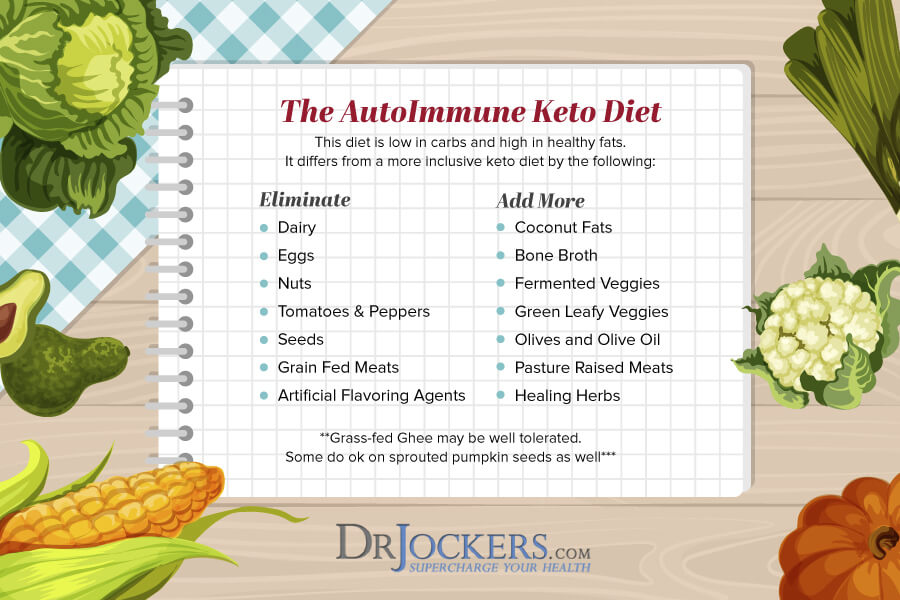
Healthy Fats
Healthy fats should make up the bulk of your diet. Not only do they provide a fuel that your body can convert into ketones, but they are an important component of your cells. Not many people realize this, but healthy fats also serve as a transport vehicle for several nutrients like Vitamins A, D, E, and K. The combined effect of these nutrients ensure bones remain strong and inflammation is kept at bay.
Saturated fats like grass-fed butter and coconut oil are some of the best options. Other great sources of fat include pastured meats, avocados, olive oil, and MCT oil. The graphic below shows which are best for cooking and dressing purposes.
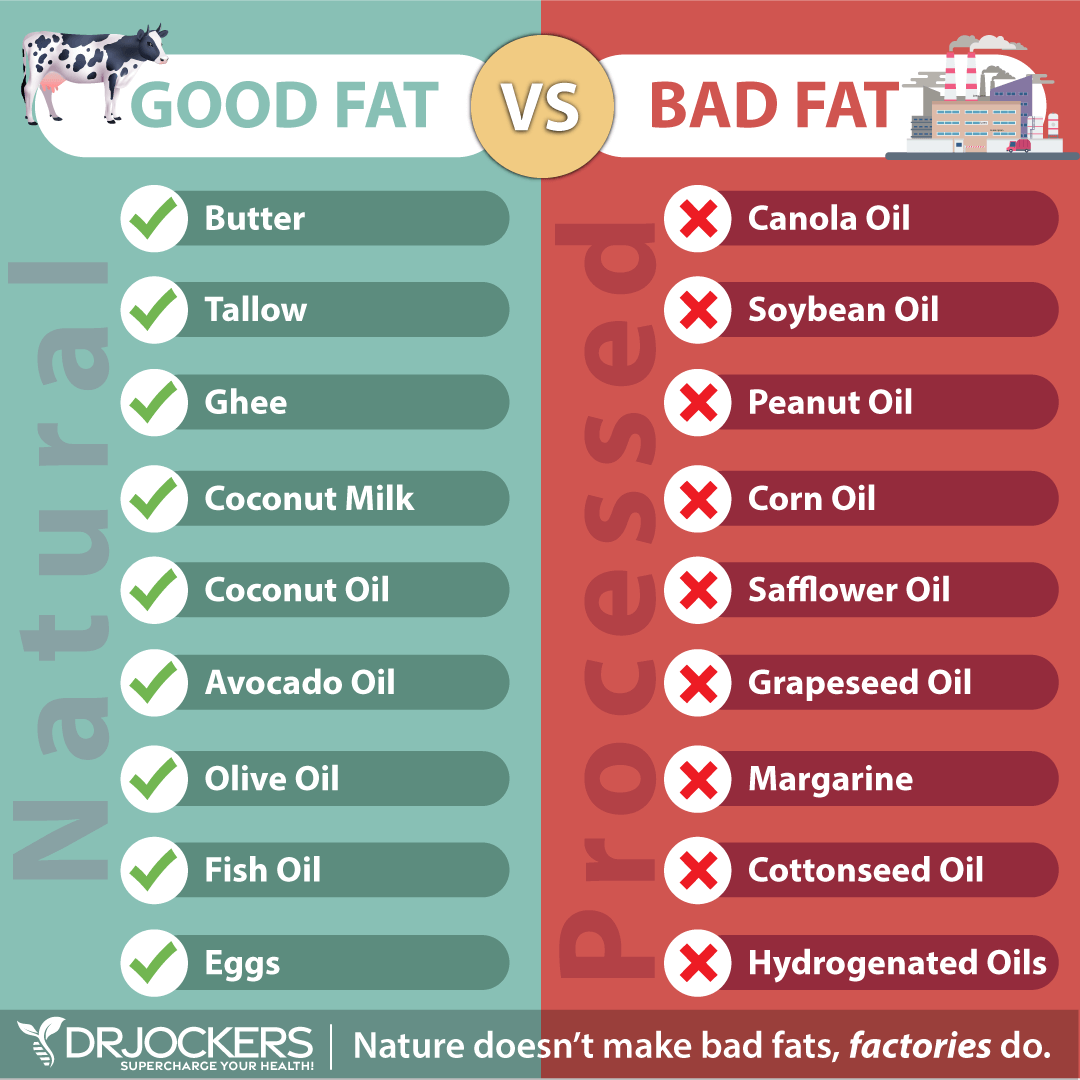
Protein
Protein, in general, should make up about 20-30% of your calories. A good way to calculate your protein needs is by converting your bodyweight in pounds to kilograms. Next, multiply your weight in kilograms by 0.8 and 1.0. The result is the range (in grams) of protein you will want to shoot for on a daily basis. More detailed recommendations are illustrated in the graphic below.
The best sources of ketogenic protein are things like pastured meats, organ meats and bone broth. A high-quality plant-based cleansing protein powder like this one can also be great. Finally, if you are someone who is highly active and trying to build lean body mass, essential amino acids are an excellent keto companion.
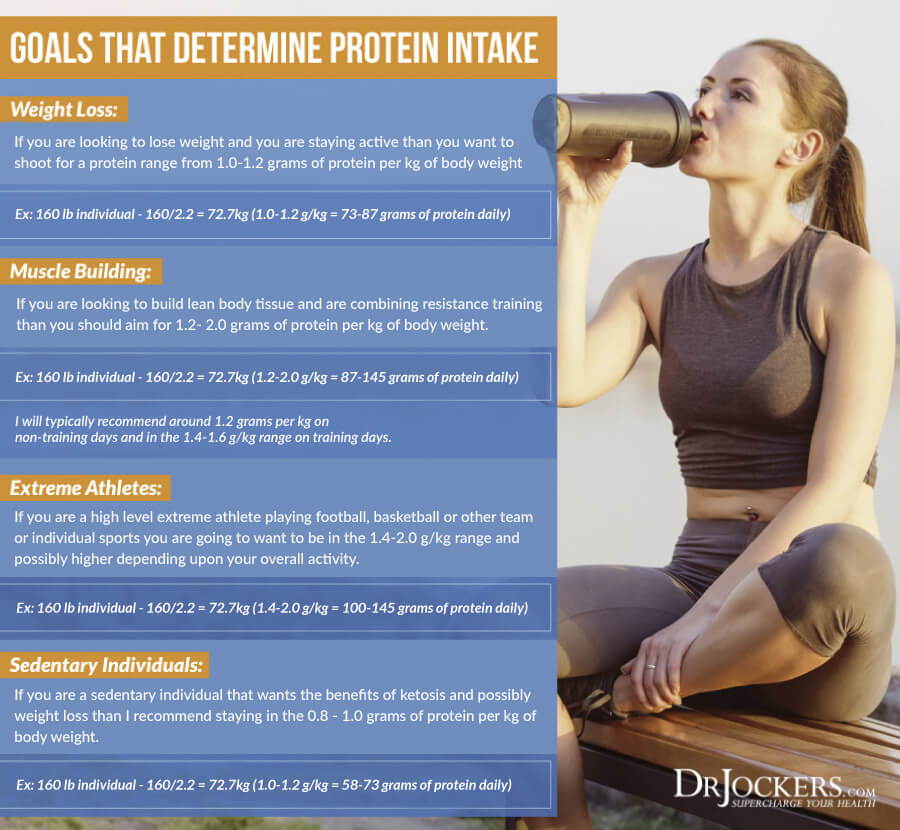
Non-Starchy Vegetables
Vegetables are a crucial part of a rheumatoid arthritis diet. While healthy fats should make up the majority of calories on this nutrition plan, plant matter should make up a large physical volume of each meal. Non-starchy vegetables are full of anti-inflammatory nutrients and provide the digestive tract with prebiotic fiber.
This fiber nourishes the bacteria in the gut which helps promote healthy digestion. Poor digestion and an inflamed gut are both primary sources of inflammation that can be addressed on this diet.
The list of vegetables includes celery, leafy greens, broccoli, cabbage, cauliflower, peas, green beans, cucumbers, asparagus and all types of lettuce. More of my favorite foods in this category can be found below.
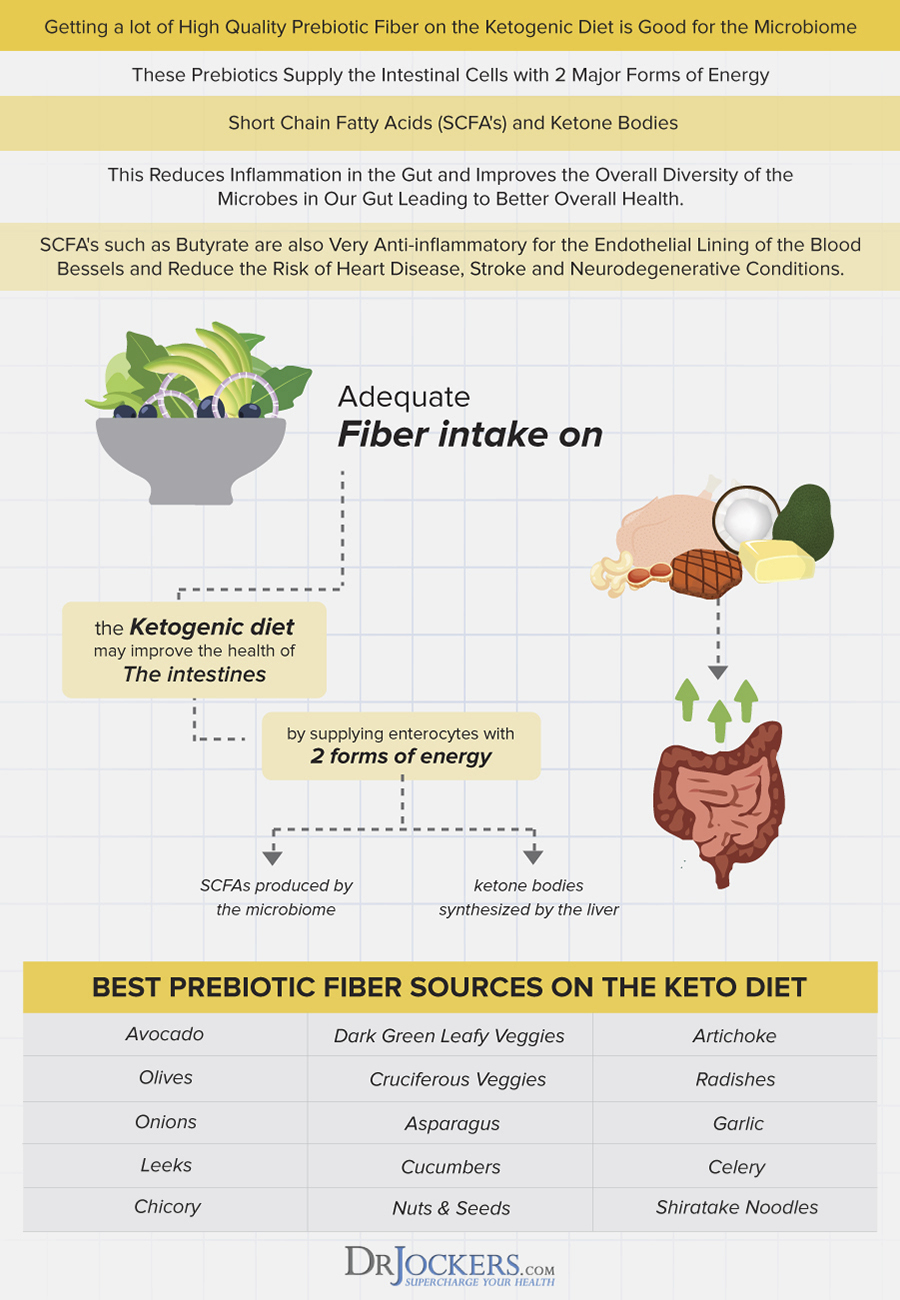
Fruit
Since fruits are high in sugar (even if it is natural sugar) they should be eaten only in moderation. Look for low glycemic fruit such as berries, green apples, and grapefruit.
I would not consider these a particularly necessary aspect of the diet if you are consuming a wide variety of herbs and vegetables. The one exception would be organic berries as they are loaded with antioxidants called anthocyanins. Blueberries and dark cherries are some of the best options but keep the servings low (about ½ cup).
In general, with all foods considered, most people do best with a net carb amount of 20-30 grams per day. Net carbs can be calculated by subtracting fiber from total carbs in a given food.
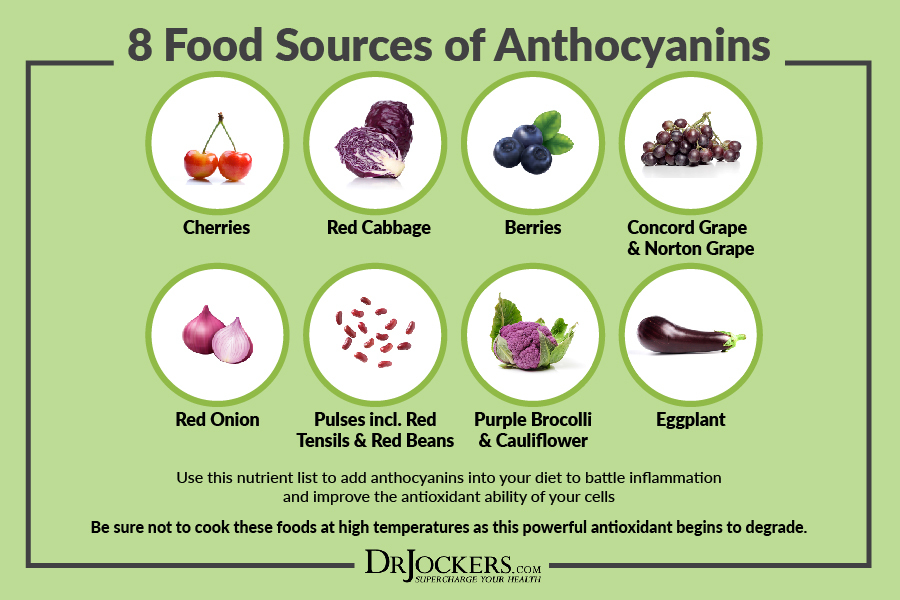
Bone-Building Foods
When it comes to rebuilding your bones, tendons, and ligaments – calcium is not really what you need. In fact, most people have plenty of calcium. The issue is that it is not going to the right place. This is because certain nutrients like vitamin D, vitamin K, and magnesium all play a role in calcium deposition.
Ensuring you have adequate amounts of those nutrients will be key for a successful rheumatoid arthritis diet. Some of the best foods that provide these nutrients are listed in the graphic below. Bone broth, in particular, is excellent for nourishing the soft tissues that can become damaged in RA – such as the synovial fluid in joints.
Side Effects
While the ketogenic diet has numerous benefits, it can be a bit of a transition from a carbohydrate-heavy diet. During the initial stages of adoption, your body must adjust to burning fat as a primary fuel source over carbs.
Many people during the first 3-10 days experience a group of symptoms referred to as keto-flu. These symptoms may include:
- Fatigue
- Dizziness
- Fever
- Chills
- Headaches
- Irritability
These symptoms can occur for a few different reasons and only a small percentage of people tend to have them. Check out this article for the strategies to limit your chances: 7 Ways to Prevent Keto Flu.
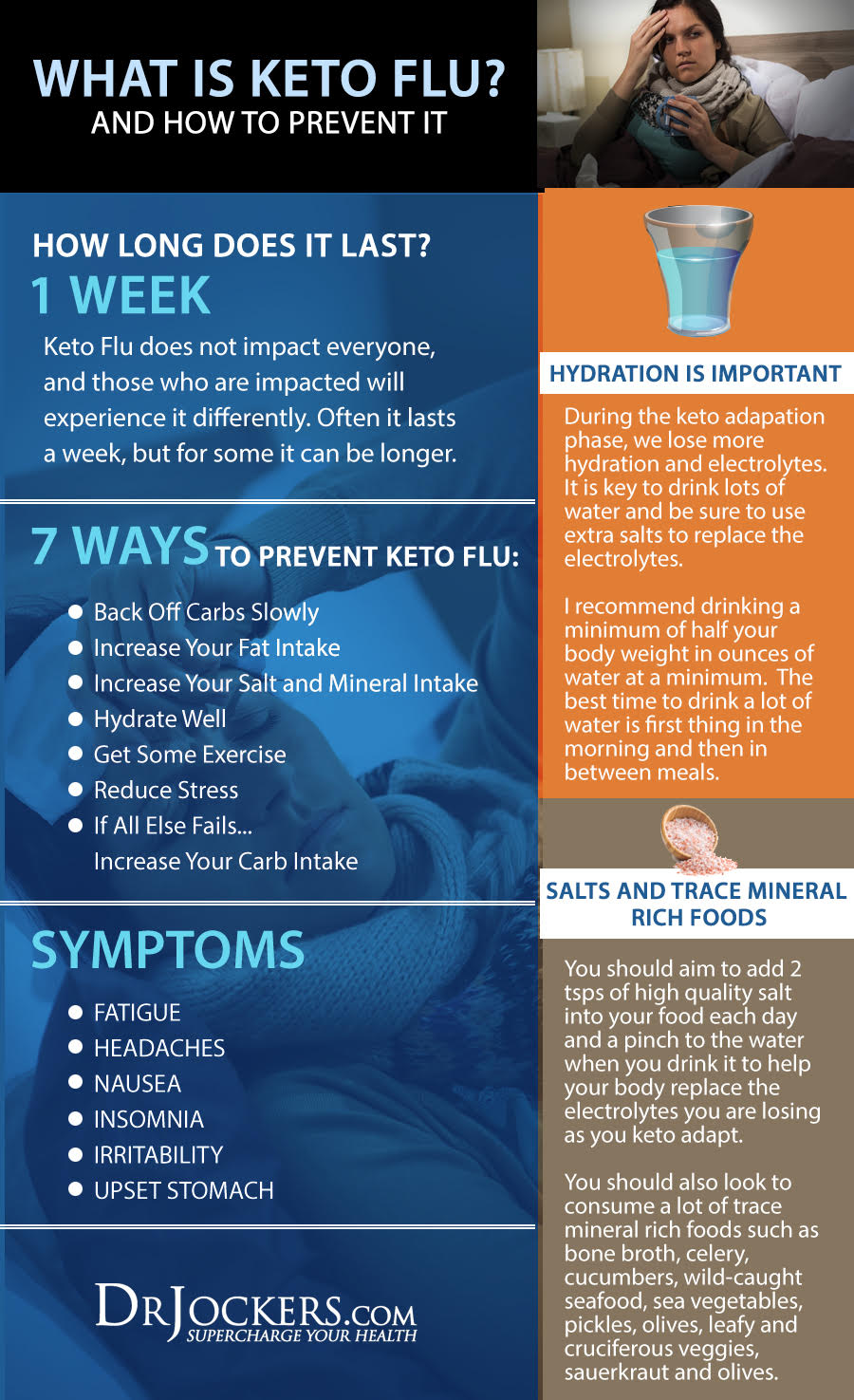
Concerns About a Ketogenic Diet
If you are hesitant about starting a high-fat nutrition plan as a rheumatoid arthritis diet, there are a number of articles to help clear up your specific concerns. The following articles can help address most questions:
Is a Ketogenic Diet Safe for Diabetics?
Keto Vs Low-carb: What’s the Difference?
Can you Do Keto Without a Gallbladder?
More Help for Those with RA
There is no doubt that the neck (or cervical spine) is often affected by this disease (8). The laxity of the vertebrae and ligaments inhibit the immune system from working properly by blocking signals sent from the brain.
The majority of surgeons will recommend surgery to stabilize the neck. Seeing a chiropractor at the onset of symptoms may help to realigned and strengthen the neck before surgery is considered, however.
While chiropractic adjustments to the cervical spine will not cure RA, it may improve symptoms – including less numbness, fewer headaches, and less general body pain.
**Note: Those with osteoporosis or other skeletal abnormalities should not receive adjustments to the cervical spine.
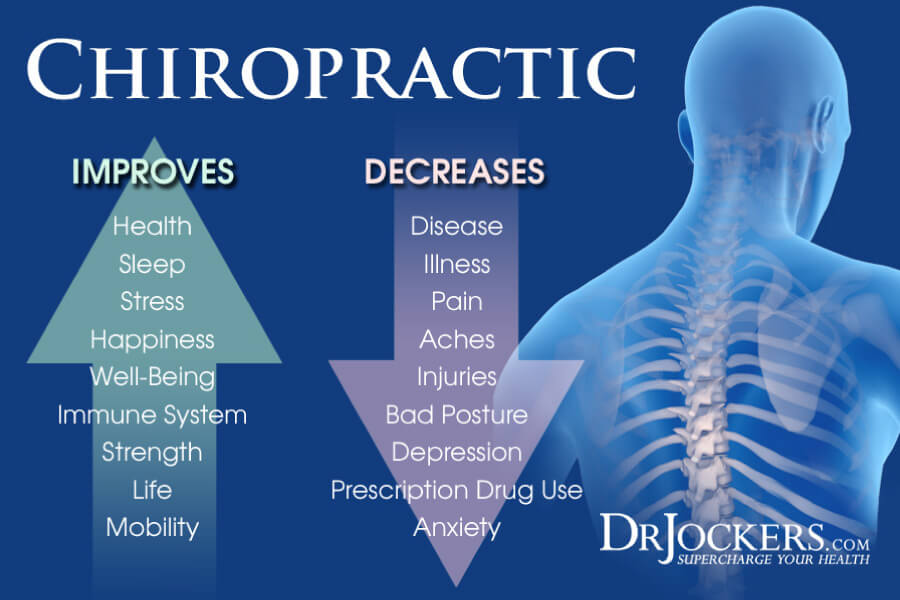
Author Bio:
 Dr. Brent Wells is the founder of Better Health Chiropractic and Physical Rehab. Dr. Wells believes in treating people the way he would want to be treated. Born and raised in Southern California, Dr. Wells received his Bachelor of Science degree from the University of Nevada and his Doctor of Chiropractic Medicine degree from Western States Chiropractic College. He, his wife Coni, and their three children live in and enjoy the great outdoors in Alaska. Dr. Wells volunteers for Reflex Sympathetic Dystrophy Foundation and can be found hiking or rollerblading when he isn’t playing his guitar.
Dr. Brent Wells is the founder of Better Health Chiropractic and Physical Rehab. Dr. Wells believes in treating people the way he would want to be treated. Born and raised in Southern California, Dr. Wells received his Bachelor of Science degree from the University of Nevada and his Doctor of Chiropractic Medicine degree from Western States Chiropractic College. He, his wife Coni, and their three children live in and enjoy the great outdoors in Alaska. Dr. Wells volunteers for Reflex Sympathetic Dystrophy Foundation and can be found hiking or rollerblading when he isn’t playing his guitar.
Sources for this Article Include:
1. Jiang Y, Pan Y, Rhea PR, et al. A Sucrose-Enriched Diet Promotes Tumorigenesis in Mammary Gland in Part through the 12-Lipoxygenase Pathway. Cancer Res. 2016;76(1):24-9. PMID: 26729790
2. Nestel P. Trans fatty acids: are its cardiovascular risks fully appreciated?. Clin Ther. 2014;36(3):315-21. PMID: 24636816
3. Spreadbury I. Comparison with ancestral diets suggests dense acellular carbohydrates promote an inflammatory microbiota, and may be the primary dietary cause of leptin resistance and obesity. Diabetes Metab Syndr Obes. 2012;5:175-89. PMID: 22826636
4. Uribarri J, Woodruff S, Goodman S, et al. Advanced glycation end products in foods and a practical guide to their reduction in the diet. J Am Diet Assoc. 2010;110(6):911-16.e12. PMID: 20497781
5. Masino SA, Ruskin DN. Ketogenic diets and pain. J Child Neurol. 2013;28(8):993-1001. PMID:23680946
6. Wright C, Simone NL. Obesity and tumor growth: inflammation, immunity, and the role of a ketogenic diet. Curr Opin Clin Nutr Metab Care. 2016;19(4):294-9. PMID: 27168354
7. Fraser DA, Thoen J, Bondhus S, et al. Reduction in serum leptin and IGF-1 but preserved T-lymphocyte numbers and activation after a ketogenic diet in rheumatoid arthritis patients. Clin Exp Rheumatol. 2000;18(2):209-14. PMID: 10812493
8. Murphy P, Likhodii S, Nylen K, Burnham WM. The antidepressant properties of the ketogenic diet. Biol Psychiatry. 2004;56(12):981-3. PMID: 15601609
9. Bostock EC, Kirkby KC, Taylor BV. The Current Status of the Ketogenic Diet in Psychiatry. Front Psychiatry. 2017;8:43. PMID: 28373848
10. Crowson CS, Matteson EL, Davis JM, Gabriel SE. Contribution of obesity to the rise in incidence of rheumatoid arthritis. Arthritis Care Res (Hoboken). 2013;65(1):71-7. PMID: 22514156
11. Dashti HM, Mathew TC, Hussein T, et al. Long-term effects of a ketogenic diet in obese patients. Exp Clin Cardiol. 2004;9(3):200-5. PMID: 19641727

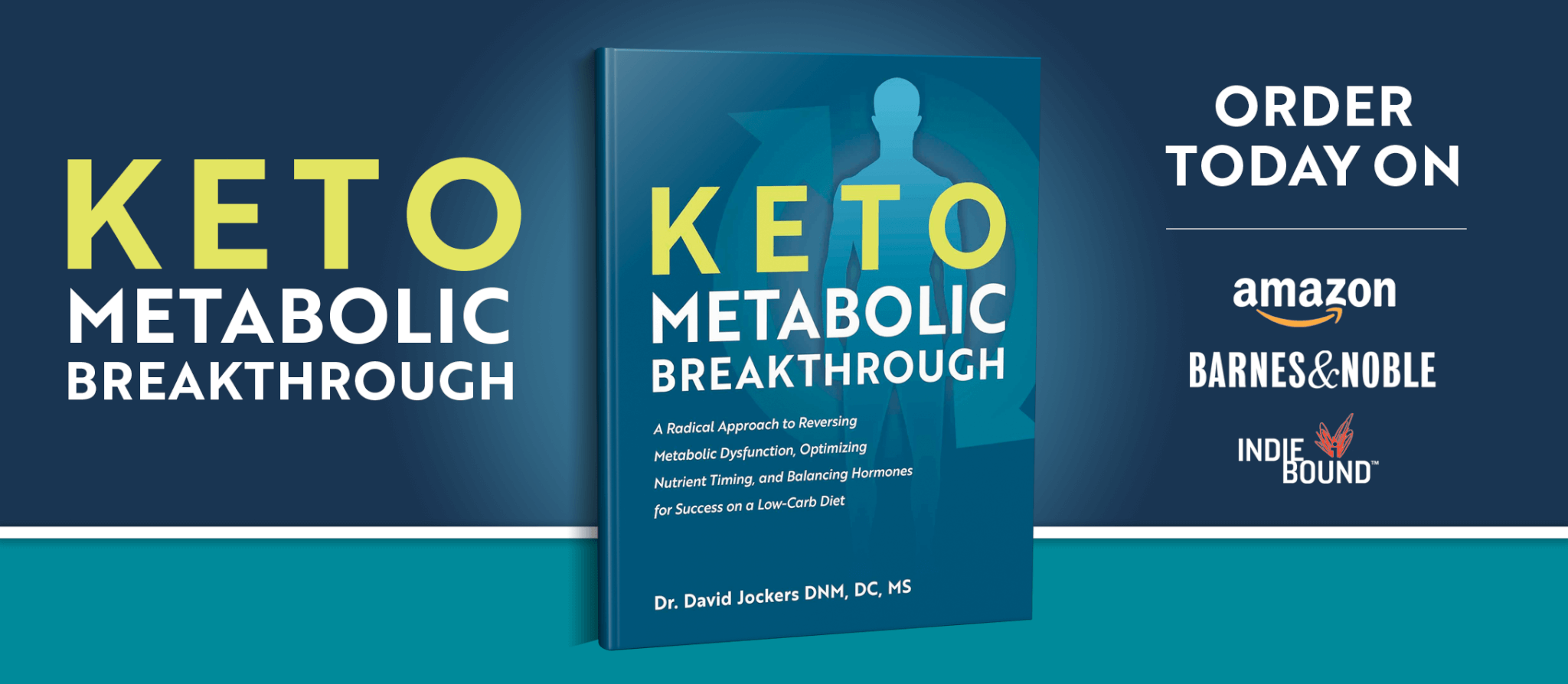


I have two problems with this approach: first is, every person that exhibits RA has a biochemical individuality that won’t necessarily improve with the same “one size fits all” mentality, and secondly, since we find that “inflammation” seems to be the target where all guns are turned to band-aid or suppress the symptoms without much reversal or cured cases leaves a lot to be desired. If you want to address causes, look at the toxicological studies from the last 40 years demonstrating causes from metals. They have done their work.
Spoken like someone who has never experienced the excruciating pain of RA. While I appreciate your response, most of the food we eat on the SAD diet is highly inflammatory and not nutrient dense. This approach costs the sufferer nothing. The only way to find out if it works, is to try it for yourself. There is no harm in that.
Yes there are certainly many factors that contribute to chronic inflammatory and degenerative diseases. This is why we offer lab testing to assess the individual and functional health coaching to create individualized planning. The information in an article like this is great for getting people started!
I have rheumatoid arthritis. I went AIP for a year and elevated Many of my symptoms. This year I’ve done keto and intermittent fasting, the results have been amazing! I am down to one medication. I am a primal health coach certified through Mark Sisson. I recommend to all of my autoimmune Clients, who are experiencing severe symptoms, to try the carnivore diet for five days, drink bone broth for five days, re-introduce meat for five days along with low carb veggies and healthy fats. One young man with severe Crohn’s disease actually gained weight with this protocol! He was looking pretty emaciated. Another client with MS so severe she is missing half a brain stem, has more energy then she ever dreamed possible! If you have an autoimmune disease, you have nothing to lose by trying this way of life! I myself am down to one medication twice a month! At one point I was on five medications with little relief!
Thank you Dr. Jockers and God bless you!
Anna Fruehling
Awesome testimony Anna!
Thanks for this great overview and the references. I have severe RA and have been able to reduce my CRP from 19 to 4.6 with the ketogenic diet. I was on a balanced, Mediterranean style diet before, no junk food. Also appreciate your comments on the anti-depressive function. I am a lot more focussed, productive and able to stay positive since I switched to keto. No more brain fog. Unfortunately, as soon as I increase my carb intake, I get worse again very quickly, it doesn’t feel a very stable improvement yet.
Great to hear you are doing so much better Sandra! Blessings!
Had severe RA for 8 years, started keto in July 20 18 lost 4 stone and now in remission, noticeable difference in 1 month, now take no meds what so ever havnt done for 6 months
Hi Bex, that is wonderful news! Thank you for sharing.
I have RA factor from last 5 years. N swear inflammation as well
Weight is gaining n gaining….. my weight is 75 kg n height is 5.5 ft
Sir,
Can i do keto with my disease
Plz respong
Jiaa
Sorry to hear that! Here is a helpful article https://drjockers.com/beat-rheumatoid-arthritis-naturally/
I am confused by this article. It says to eliminate dairy and eggs but further down it says that you can have raw dairy and egg yolks.
Yes I would recommend eliminating them for a few weeks and then slowly adding them back to see if you notice that they aggravate the symptoms or not.